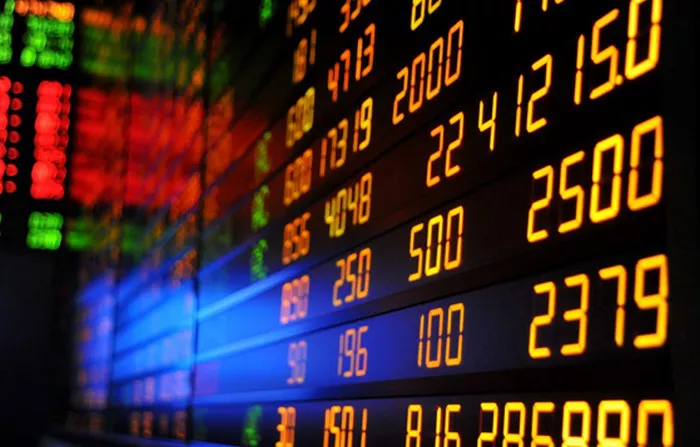In the fast-paced world of financial markets, there’s a segment that never sleeps: futures trading. While many financial markets have specific trading hours, several futures markets operate around the clock, offering traders and investors continuous access to opportunities.
Currency Futures
One of the most prominent 24/7 futures markets is the currency futures market. Currency futures are contracts that allow participants to speculate on the exchange rate between two currencies. Since global currency markets operate 24 hours a day, five days a week, currency futures also trade continuously. Major currency pairs, such as EUR/USD and USD/JPY, are actively traded around the clock, with trading sessions shifting from one financial center to another.
Cryptocurrency Futures
The rise of cryptocurrencies has introduced a new dimension to 24/7 futures trading. Cryptocurrency futures, such as Bitcoin futures, are available for trading on various platforms, enabling participants to speculate on the future price movements of digital assets. Cryptocurrency markets never close, offering traders continuous access to these volatile and fast-moving instruments.
Energy Futures
Energy futures, which include contracts for crude oil and natural gas, also trade 24/7. These markets are essential due to the global nature of the energy industry, where events around the world can impact supply and demand at any time. As a result, energy futures provide traders with opportunities to react to news and developments in real-time.
Agricultural Futures
Agricultural futures, including contracts for grains like corn, soybeans, and wheat, also trade continuously. Agriculture markets are influenced by factors such as weather conditions, global demand, and geopolitical events, making 24/7 trading essential for market participants to manage risk and seize opportunities.
Interest Rate Futures
Interest rate futures, tied to various fixed-income instruments, operate nearly 24/7 as well. While these markets have specific trading hours, interest rate movements can be affected by events occurring worldwide at any time, leading to extended trading hours in certain situations.
Metals Futures
Metals futures, particularly gold and silver, are part of the 24/7 trading landscape. Precious metals are considered safe-haven assets, and their prices can be influenced by global economic and geopolitical events that occur outside regular trading hours.
Benefits of 24/7 Futures Trading
The availability of 24/7 futures trading brings several benefits to market participants:
Global Accessibility: Traders from around the world can participate in markets regardless of their time zone, ensuring equal access to opportunities.
Immediate Reaction: Continuous trading allows for immediate reactions to breaking news and events, reducing the risk of significant price gaps.
Risk Management: Traders can manage risk by adjusting positions in response to developments outside regular trading hours.
Liquidity: 24/7 trading often results in increased liquidity, facilitating smoother order execution.
Hedging: Businesses and institutions with exposure to global markets can use 24/7 futures trading to hedge against currency, commodity, and interest rate risks.
Challenges of 24/7 Futures Trading
While 24/7 futures trading offers numerous advantages, it also presents challenges:
Fatigue: Continuous trading can lead to trader fatigue and burnout, as participants need to stay alert during extended hours.
Lack of Sleep: Traders in different time zones may need to trade during nighttime hours, potentially disrupting their sleep patterns.
Increased Volatility: Extended trading hours can lead to higher volatility, with sharp price movements occurring during low-volume periods.
Risk of Gaps: News events during off-hours can result in significant price gaps when markets reopen.
Trading Platforms and Technology
To participate in 24/7 futures trading, traders and investors rely on advanced trading platforms and technology. These platforms provide real-time market data, charting tools, order execution capabilities, and risk management features. Additionally, algorithmic trading systems and automated strategies play a significant role in monitoring and executing trades around the clock.
Risk Management Strategies
Managing risk in 24/7 futures trading is paramount. Traders use various strategies to mitigate potential losses, including:
Stop Orders: Placing stop orders to limit potential losses or lock in profits if the market moves against the trader’s position.
Limit Orders: Using limit orders to enter or exit trades at specific price levels, ensuring that trades are executed at desired levels.
Diversification: Spreading risk across multiple asset classes or markets to reduce exposure to individual market events.
Hedging: Employing hedging strategies to protect existing positions from adverse price movements.
Risk Limits: Setting predefined risk limits or maximum drawdown levels to prevent excessive losses.
Conclusion
24/7 futures trading has become an integral part of the global financial landscape, offering continuous access to markets and opportunities for traders and investors worldwide. While it brings benefits such as global accessibility and immediate reaction to market events, it also presents challenges related to trader fatigue and increased volatility. To navigate this environment successfully, market participants rely on advanced technology, risk management strategies, and a deep understanding of the markets they trade. As the world continues to evolve, 24/7 futures trading is likely to play an even more significant role in the future of finance.

